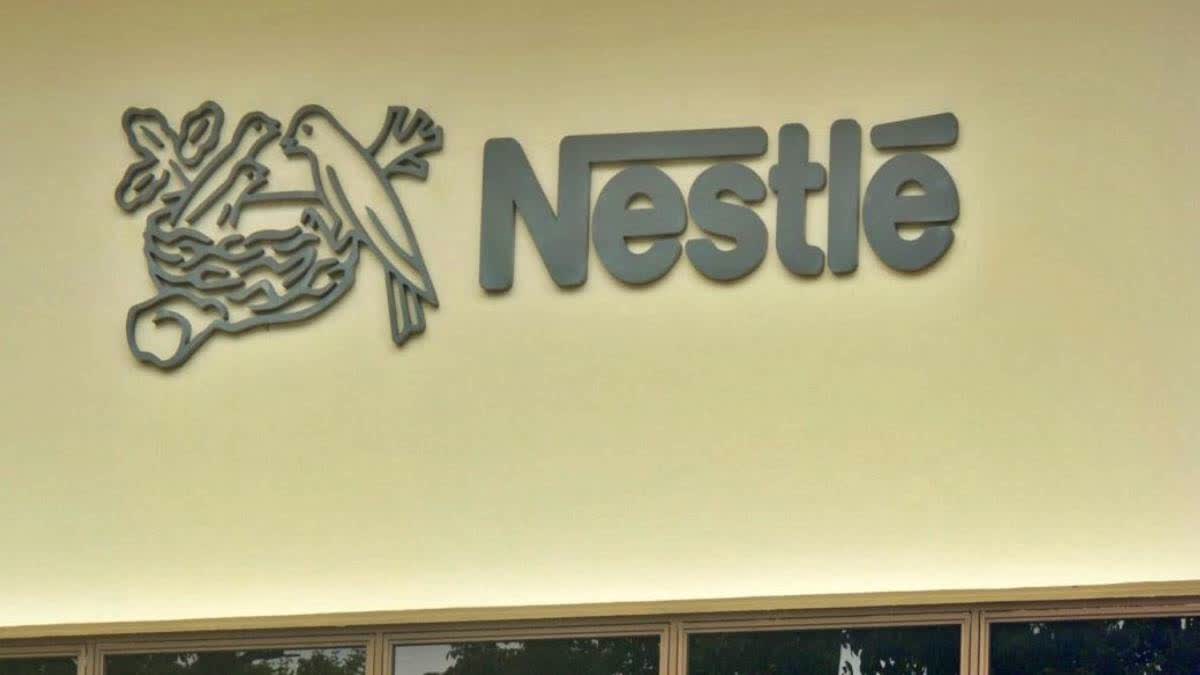New Delhi:The scientific committee of the Food Safety and Standards Authority of India (FSSAI) is looking into a claim made by Public Eye, a Swiss investigative organisation, of Nestlé adding sugar and honey to its infant milk and cereal range sold in low and middle-income countries including India, an official in the FSSAI told ETV Bharat on Saturday.
“Our scientific committee is looking into the issue and they are verifying the claim made by the foreign organisation. After a proper examination by the scientific committee a follow-up action will be taken,” the official said.
When contacted renowned pediatrician and member of Nitin Aayog (Heath) Dr VK Paul said that FSSAI is looking into the issue.
What is FSSAI:
The FSSAI lays down scientific standards for food articles and to regulate their manufacture, storage, distribution, sale and import to ensure availability of safe and wholesome food for human consumption. The Ministry of Health & Family Welfare, Government of India is the administrative Ministry for the implementation of FSSAI.
Tye authority has been established under Food Safety and Standards, 2006 which consolidates various acts and orders that have hitherto handled food related issues in various Ministries and departments.
The FSSAI frames regulations to lay down the standards and guidelines in relation to articles of food and specifying appropriate system of enforcing various standards thus notified. It also lays down mechanisms and guidelines for accreditation of bodies engaged in certification of food safety management systems for food businesses among other important activities. The authority has 21 scientific panels to look into various food items.
What is the Nestlé controversy:
A Swiss investigative organisation-Public Eye and IBFAN (International Baby Food Action Network) dispatched samples of the company’s baby food items marketed in Asia, Africa, and Latin America to a Belgian laboratory for examination. According to the findings, Nestle adds sugar to infant milk sold in less affluent nations including India but not in its primary markets like Europe or the UK.
According to Public Eye, in the lucrative Indian market, exceeding $250 million in sales in 2022, every Cerelac baby cereal variant contains supplementary sugar, averaging nearly 3 grams per portion. It further said that Cerelac wheat-based cereals tailored for six-month-old infants retailed by Nestle in Germany, France and the UK are devoid of additional sugar. Conversely, the identical product has more than 5 grams per serving in Ethiopia and 6 grams in Thailand.
Statement from Nestlé:
The company said that compliance is an essential characteristic of Nestlé India, and it never compromises on that. The Nestlé also assures that its products manufactured in India are in full and strict compliance with Codex Alimentarius (Latin for ‘Food Code’) standards (a commission established by World Health Organisation and Food and Agriculture Organisation of the United Nations) and local specifications (as required) pertaining to the requirements of all nutrients, including added sugars.
“We regularly review our portfolio and continue to innovate and reformulate our products to further reduce the level of added sugars, without compromising on nutrition, quality, safety, and taste,” Nestle India spokesperson said in a statement
Authorities initiate action:
The National Commission for Protection of Child Rights (NCPCR), taking cognizance of the media reports, asked FSSAI to undertake a comprehensive review of the sugar content in baby food products manufactured and marketed by Nestlé and other companies. The NCPCR said that given the vulnerability of the population group and their unique nutritional needs, it was imperative that baby foods meet strict standards for quality and safety. Meanwhile, the Consumer Affairs Ministry on Friday also asked the food safety regulator FSSAI to investigate the composition of Nestle's Cerelac baby cereals available in India.
Experts Opinion:
The controversy has also raised eyebrows of the medical fraternity in India. Pediatricians said that high sugar in baby products raises serious concerns about the potential implications for the health and safety of children.
According to the World Health Organisation (WHO) guidelines, sugar is not recommended for infants. Added sugar can raise the risk of long-term health issues in babies, making them susceptible to diabetes and other chronic diseases.
Talking to ETV Bharat, renowned pediatric and head, pediatric and neonatology at Artemis Lite hospital in Gurugram Dr Vineet Kwatra said, “This has already been in discussion for a long time. Why has sugar been added? It basically leads to obesity and it can also cause non communicable diseases like diabetes. Adding sugar is obviously harmful because the Indian government, WHO and Indian Academy of Pediatric say that sugar components should not be added at least for one year even if the baby starts having food. Sugar components should be added only after two years, which is a normal pattern,” said Dr Kwatra.
Read more
- Consumer Affairs Min Asks FSSAI To Probe Composition Of Nestle's Cerelac Baby Cereals Sold In India
- NCPCR Asks FSSAI To Review Sugar Levels In Baby Food Products
- Upma Served By IndiGo Has Higher Sodium Content, Claims Social Media User
